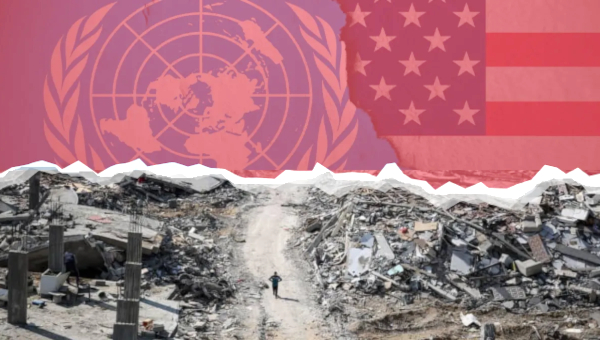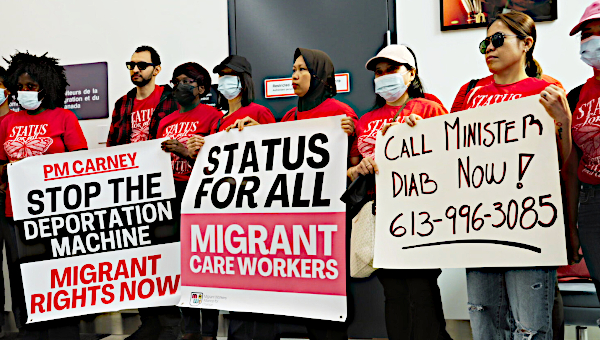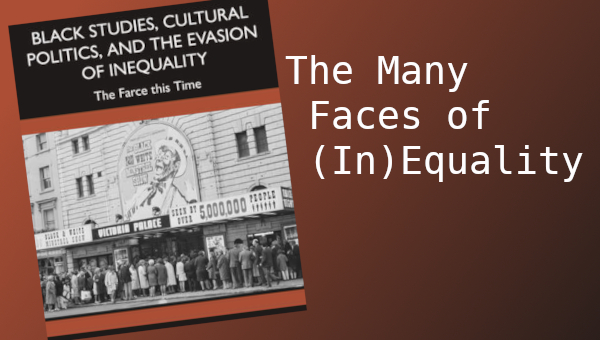The Struggle for Water Justice is a Struggle for Gender and Racial Justice
The essay is published in honour of World Water Day, which has been held every year on March 22 since 1993. The goal of this day is to celebrate water and raise awareness of the 2.2 billion people living without access to safe water. Check out the Alternative World Water Forum (AWWF) – in French, the Forum Alternatif Mondial de l’Eau (FAME) for a calendar of events.
COVID-19 has exposed deep, structural inequalities in the world today along the lines of class, gender and race – between well-resourced and precarious workers, women and men, racialized and non-racialized people. The lenses of gender justice and environmental racism help us understand how the inter-related histories of colonialism and capitalism have created the unequal world that we live in, entrenching inequalities in the built environment as clearly evidenced by access to water and sanitation. The pandemic also creates an opportunity to refocus efforts on Universal Basic Services as one way to exit this crisis.
The lack of access to basic water and sanitation is one of these inequalities that maps along the lines of race, class and gender. Yet in 2017, 3 billion people still lacked basic hand-washing facilities at home: 1.6 billion had limited facilities lacking soap or water and 1.4 billion had no facility at all (UNICEF and WHO 2019). Unsurprisingly, this deficit affects primarily the poor in the underdeveloped zones of the world economy, particularly poor women and girls who are tasked with procuring water in communities that do not have access to an improved water source or sanitation.
In order to understand and address these inequalities, we need to examine how power and inequality are structured differently for historically oppressed groups created by capitalism and colonialism. Achieving a water justice that contributes to gender and racial justice requires more than just reform of institutions to broaden representation the representation of women and other political minorities. It requires a rethink of the for-profit system that threatens the ecology, a redistribution of wealth and power, and massive public investment in ‘Universal Basic Services.’
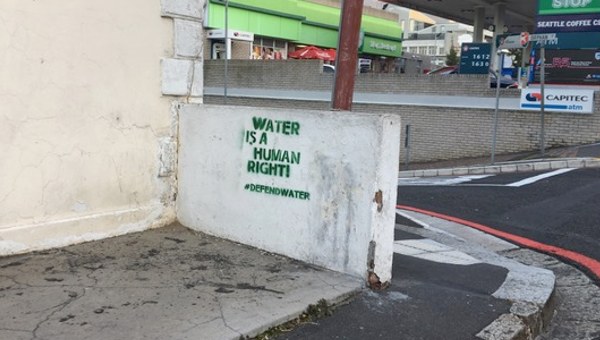
Gender, Race, Class and Access to Water and Sanitation
Water is central the activities of life-making. The world over, women are the primary care providers in households. Women rely on water for most daily care providing tasks, such as preparation of food, cleaning, personal hygiene and caring for the young, sick and the elderly, as well as for growing crops and keeping livestock. In the marginalized zones of the world economy where households lack access to networked infrastructure, the task of procuring water falls disproportionately on women and girls (UN Water 2006).
Stay-at-home orders have made it difficult for many women to procure safe water and food for their households. Some women will need to decide to spend time permitted outside the home to procure either safe water or food for their children and families. Strict lockdown rules in many countries, including curfews and limits on congregating at common water distribution points, further compound these difficulties. Across the world, 29% of people do not have water inside their home (as high as to 73% in sub-Saharan Africa), the additional long journeys to water sources caused by increased demand for water will mean more chances of contact with others at water points or kiosks (UNICEF/WHO JMP 2020). Women often walk long and treacherous distances and/or wait in long lines to collect water. For example, UNICEF estimates that every day, pre-pandemic women spend 200 million hours (or more than 22,800 years) collecting this vital resource. COVID-19 has likely made this situation worse. And for many, it will mean spending more of their already scarce resources on buying water at an unaffordable cost from private vendors who sometimes see crisis as an opportunity to make windfall profits (Nath and Gosling 2020).
Women and girls also face particular challenges due to lack of access to adequate sanitation. Women and girls who practice open defecation or must use remote latrines located in unsafe spaces face increased risk of sexualized violence. Women face particular challenges due to menstruation. Even in non-pandemic times, inappropriate menstrual hygiene management prevents girls from attending school. UNICEF has estimated, for example, that 1 in 10 girls in Africa miss school because of their period (cited in Noriega 2015). During times of enforced isolation and closure of many public facilities, women and girls’ ability to manage menstruation can be further compromised in communities and households. Finding a clean and private space to change and wash while remaining indoors for much of the time with their family, and accessing menstrual materials and water, is even more difficult. As Jennifer Weiss-Wolf (2020) put it, “periods do not stop for pandemics.” In order to attend to these particular needs, girls and women require access to menstrual hygiene products, as well as sex-segregated latrines and hand washing facilities equipped with locks and lighting as well as safe and discrete disposal facilities (Cone 2020). This fact is as true in public buildings, such as a school, as it is in an informal settlement or a refugee camp.
While the WHO’s COVID-19 guidelines are essential for everyone’s health, it is clear that women, particularly poor women, face challenges in implementing them that are quite different from those faced by men. Women need support from governments and international organizations to ensure that the pandemic does not wipe out decades of gains in gender equality (UN 2020). Access to clean water and sanitation is part of this gender equality agenda; water justice and gender justice cannot be seen as separate issues.
Environmental racism and access to water and sanitation
Due to historical and continuing relations of colonialism, access to networked infrastructure that delivers a continuous supply of clean water and adequate sanitation is also highly uneven. While environmental factors such as drought and limited supply affect the provision of these services, we must go beyond the idea that scarcity is determined by nature. The 2006 UNDP report Beyond Scarcity: Power, poverty and the global water crisis draws our attention to the way that the crisis is socially constructed. According to the report,
“There is more than enough water in the world for domestic purposes, for agriculture and for industry. The problem is that some people notably the poor are systematically excluded from access by their poverty, by their limited legal rights or by public policies that limit access to the infrastructures that provide water for life and for livelihoods” (2006, p.3).
These systemic exclusions that create deprivation include those related to environmental racism, or the pattern of inequalities that links the discrimination of racialized communities to the marginalized areas in which they are often forced to live – including near mines, toxic waste sites and landfills with higher levels of air, water, and soil pollution (Bullard 1993).
In the global North, legacies of environmental racism in white settler states such as the United States and Canada have left historically marginalized communities at greater risk from COVID-19 and deprived of entitlements such as access to clean, safe water and sanitation. The critical literature on the social determinants of health recognizes that racism is one of the main factors responsible for poorer public health outcomes among racialized and Indigenous communities in the United States and Canada (Paradies et al. 2015; Greenwood and Leeuw 2012). These communities are at greater risk from a disease primed to exploit pre-existing health issues and infrastructural shortcomings, including COVID-19.
The City of Detroit, Michigan – a rust-belt city whose decline is related to neoliberal globalization – has had a particularly poor record when it comes to racism and providing access to basic services essential for public health. Since 2014, over 140,000 homes in Detroit have had their water service disconnected as part of a debt-payment program. In 2019, more than 23,000 accounts had their water shut off, and 37 percent still did not have their services restored as of mid-January. After the WHO declared COVID-19 a pandemic the second week of March, the city promised to restore water to residents, but by the end of the month only about 1,050 of the 10,000 people who called with had their water restored without penalty. According to a city report 8,000 residents who called were told that they did not qualify for the Water Restart Plan. As Rev Roslyn Bouier, Executive Director of a local NGO fighting water disconnections, put it in an interview with The Guardian, “Common sense says it is racism,” noting that most of those who have had their water shut off are black and poor (cited in Noor 2020).
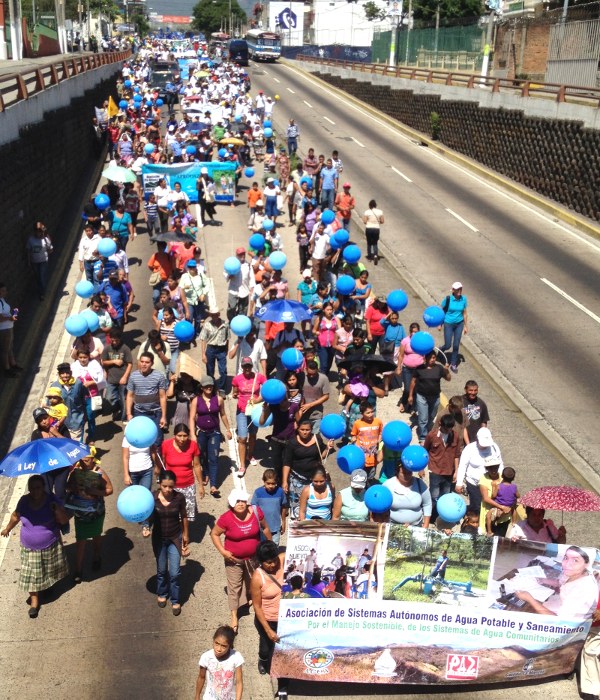
Canada is often seen to be the US’s friendlier, more egalitarian, less racist northern neighbour, but the pandemic has also hit racialized communities the hardest. Today, over 100 First Nations and Inuit communities in Canada do not have access to safe, clean water. As of February 15, 2020, Indigenous Services Canada reported that there were 61 communities with long-term drinking water advisories in effect. This number, however, does not include the scores of First Nations communities that have had either boil water or do-not-consume water advisories for a period of less than 12 months. In addition to the lack of clean water, First Nations communities also lack adequate healthcare facilities, housing or food reserves, as well as the necessary staff to implement any emergency response (Barrera 2020). Inuit communities are also at higher risk due to higher rates of tuberculosis, overcrowded and unsanitary housing and inadequate health facilities (Kiddell-Monroe et al. 2020).
The federal government has allocated $300-million to support Indigenous communities (out of a total expense package of $81-billion) (Barrera 2020). Before the pandemic, it also committed to making investments that will bring safe water to all of these communities by 2021. Progress has been made, but it seems unlikely that this goal will be reached despite its urgency in the context of the pandemic. As COVID-19 continues to expose weaknesses in our systems and Canada’s history of colonization, the government must provide sufficient and timely emergency support to Indigenous communities.
Understanding racism through an environmental lens also requires that we begin to address the role played by the global North in subjugating the nations of the global South through historical frameworks that are dependent upon the exploitation of natural resources, the impact of climate change and its political exploitation, as well as the many modes of political destabilization that have resulted from colonization and new forms of imperialism.
The recent history of water privatization in the 1990s and mid-2000s is a case in point. Buoyed by the ‘success’ of the world’s first large water privatization – the sell-off of the water utilities in England and Wales in 1989 – multinational water companies based mostly in Europe and North America saw an opportunity to profit from what they deemed to be the ultimate commodity: water. Water privatization in the developing world was promoted by the World Bank, which made the privatization of water and sanitation utilities part of the conditions required for structural adjustment loans. Years later in the wake of cancelled and renegotiated contracts and social unrest, even the World Bank recognized that it was a failure (Wall Street Journal 2003). As Hall and Lobina (2006, p. 52) suggest in their review of investments in the water sector between 1990-2005, the water privatization agenda at the height of the neoliberal era actually delayed progress in the sector. They argue that misplaced expectations on the private sector have led to a massive reduction in the level of aid and development finance from donors to the water sector which has far outweighed the actual investments made by private companies. As they summarize: “The net contribution of 15 years of privatization has thus been to significantly reduce the funds available to poor countries for investment in water” (p. 52).
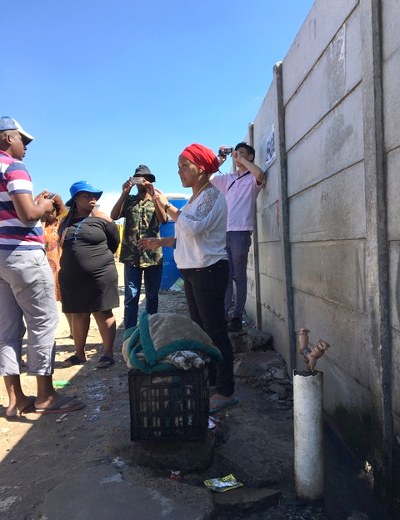
The COVID-19 pandemic exposes the vulnerability of people who live without adequate housing and health, in addition to lack of access to water and sanitation. The World Bank (2020) estimates that over a billion people worldwide face heightened risk of COVID-19 due to overcrowded and substandard living conditions in slums and other informal settlements. It has been estimated, for example, that 80% of the seven million residents of Dharavi, Asia’s largest urban slum located in Mumbai, India (made famous by blockbuster hit, Slumdog Millionaire), have no running water.
Authoritarian governments have been particularly keen to use repressive measures to keep their well-healed citizens safe from the virus, that is, to physically enforce the separation of the rich and the poor through repressive lock-downs, the clearance of slums and informal markets. While mandatory lockdowns may slow the spread of disease, they do so at the expense of poorest of the poor, who have no ability to purchase a stockpile of essential supplies such as food and water, or have nowhere to go to shelter. In countries such as Ecuador, Bolivia, India and South Africa, poor people who have been accused of violating these orders have faced harsh punishment by authorities and charged with steep fines. Governments supposedly do enforce these laws in the name of public health, despite the fact that these actions put the most vulnerable – the displaced populations – at risk of starvation and financial ruin.
If the current health crisis offers an opportunity for fundamental change, one of the first targets must be the neoliberal policies that privilege private sector participation as a means of addressing infrastructure deficits. Decisions about access to fundamental socio-economic rights such as housing and related services are made by people who do not face the consequences, and that also has to change.
Universal Basic Services: one way out of the crisis
It has been 10 years since the United Nations recognized water and sanitation as a fundamental human right. The COVID-19 virus demonstrates why water and sanitation must be available, accessible and affordable to all to keep our communities safe, healthy and thriving. While the UN recognition of the human right to water did not mean an immediate change in the daily lives of people who do not have access to water and sanitation, thanks to the efforts of social movements and their organizations, governments and aid agencies did start to take important steps. More than almost two-third of countries include water and sanitation as human rights in their constitutions, although what that right means in terms of duty bearers is subject to a wide range of interpretation (Root 2020). The COVID-19 pandemic has also highlighted the absurdity of the US refusal to accept its obligations on the human right to water – against which it has repeatedly argued, including at the United Nations.
The language of rights can ultimately fail to challenge the divisive drives of capitalism. In this moment we should seize this political opening and fight for a vision that does not prop up our destructive for-profit system under the language of ‘rights,’ which can be co-opted by individualistic, pro-privatization agendas and corporate green-washing campaigns (Fantini 2019; Karunananthan 2019). As water justice activist Maude Barlow (2020) notes, “The commitment to honour the human right to water is strongly undermined both by a lack of funds designated by governments and by the pollution, over extraction, diversion and mismanagement of the planet’s water sources. All the human rights in the world will not provide clean water where there is none.” In short, juridical rights are best seen as the beginning rather than the end of a process. As socialist feminist Tithi Bhattacharya (2019) argues, “A juridical right is not a right at all unless we create conditions for substantiating those rights.” In order to substantiate the human right to water, we urgently need to take bold action against climate change, protect and restore watersheds, and advance a public agenda to provide universal access to clean water and sanitation for all.
In order to transform the economy, we need to focus on measures to distribute wealth in the supply parts of the economy. The comprehensive plans for a Green New Deal, put forward by progressive movements in the US and the UK, do just that (Aronoff et al 2019; Klein 2019). While there are variations between the two – the UK version is more internationalist – both call for a bold new vision for the economy that aims to mitigate climate change by decarbonizing the economy but to prioritize care through expanding housing and related services. As the manifesto (Labour Party UK, 2019, p. 3) “Assuring everyone’s basic rights through the provision of universal services” argues:
“Public services are fundamentally redistributive, as they provide more relative value to those of lower income than high. They are economically resilient, operating with economies of scale and providing secure government employment that is less impacted by recessions or economic crises than market-based services; and they can be delivered and managed so as to minimize climate and environmental impact through public stewardship and efficiency gains.”
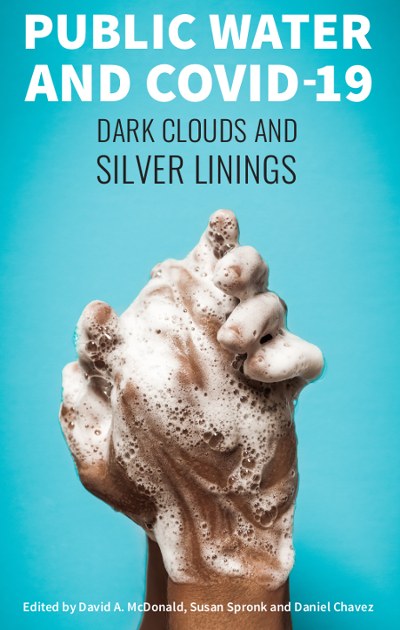 The Green New Deal and its call for Universal Basic Services provides a vision for the kind of economy we need to resolve the crisis of unpaid care work, the ecological crisis caused by climate change and to push for environmental, racial and gender justice after the pandemic.
The Green New Deal and its call for Universal Basic Services provides a vision for the kind of economy we need to resolve the crisis of unpaid care work, the ecological crisis caused by climate change and to push for environmental, racial and gender justice after the pandemic.
Conclusion
Pandemics change history. As the UNDP report (2006) Beyond Scarcity emphasizes, the ‘great leap’ in water and sanitation reform in 19th century England was the result of a cholera epidemic that affected both rich and poor. In the 1920s in Lagos, Nigeria, the bubonic plague opened the pathways for urban planning and innovations in public health and hygiene (Lawanson 2020).
COVID-19 is by no means ‘the great leveler.’ The widespread effects and global nature of the pandemic have exposed the structural inequalities that have structured the world economy. These inequalities in turn shape who is affected, the severity of that impact, and our efforts at recovery. The COVID-19 pandemic and its social and economic impacts have created a global crisis unparalleled in a century – and one which requires a holistic response to match its sheer scale and complexity. But this response, whether at the national or international level, will be significantly weakened if it does not factor in the ways in which inequalities have made all of us more vulnerable to the impacts of the crisis.
As Arundhati Roy (2020) argues, the pandemic is also a “portal.” More and more people are asking the questions, why the poor have no food, decent work, housing or access to basic services such as health, education, recreational opportunities, and water and sanitation. This era of uncertainty, protest and revolt provides an opportunity to think about how to rebuild. The lenses of gender, environmental and racial justice offer more than tools to help understand the problem, but also point to the importance of privileging equity struggles in order to achieve fairness and to overcome historical legacies of colonialism and racism that persist into the present.
We have a collective opportunity not to simply repeat past policies and to build more equal, inclusive and resilient societies. Past stimulus plans, such as the New Deal that followed the Great Depression demonstrate that the public sector will play a fundamental role in investing this crisis as well. Collective, public forms of directing, planning and financial will be necessary in order to create this new economy. Proposals for a Green New Deal, which have emerged in the past decade and have gained traction in the context of the climate crisis provide a way forward that will build a new economy based upon Universal Basic Services, which is centered on an ethics of care, and place us on a footing to create a fairer, more equitable and more sustainable collective future. •
This essay is an abridged version of a chapter entitled “COVID-19 and Structural Inequalities: Class, Gender and Race and Water Justice” published as part of an edited collection, Public Water and COVID-19: Dark Clouds and Silver Linings, available for free download. Check it out! Full references are available at downloadable version on-line.


